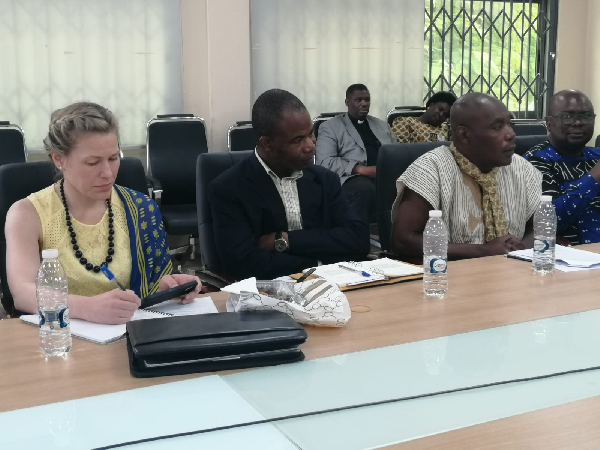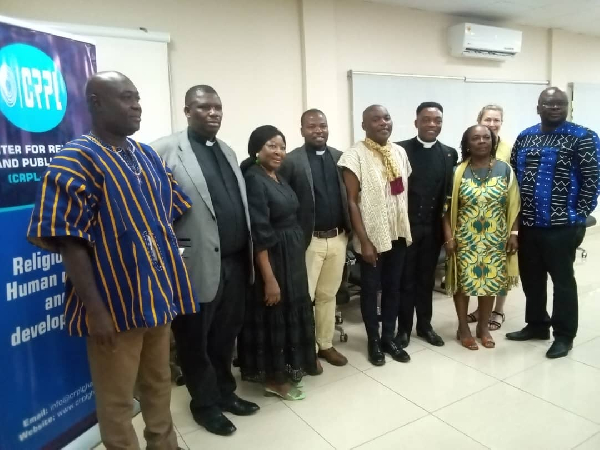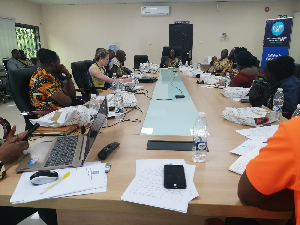The Center for Religion and Public Life has called on the government to reevaluate its stance on the proposed Anti-LGBTQ Bill, which seeks to criminalize various activities related to the LGBTQ+ community.
The organization expressed concerns that the bill could lead to unfair treatment and discrimination against individuals based on their sexual orientation and gender identity.
Rev. Canon Dr. Confidence Bansah, Chief Executive Officer of the Center for Religion and Public Life, emphasized the importance of fostering a society where everyone can freely express themselves without fear of discrimination during a stakeholder engagement at the University of Ghana on July 12, 2024.
"We are really worried that it will not be a fair deal for a government to do that in the first place. We just want to create a fair and just society where everyone, irrespective of who they are, can express themselves and feel like moving about without any fear or discrimination."
Dr. Bansah also highlighted the distinction between culture and personal identity, stating, "LGBTQ has nothing to do with culture; it is about how people live their lives.
"So let us not confuse culture with what people feel like." He further argued that criminalizing sin is not the role of the state, saying, "The prison is for criminals and not for sinners. When people commit crimes, they go to prison.
"When people sin, that is between them and their God. So, when we try to criminalize sin, we are trying to say that we have no place for any human being at all because we are all sinners."
Alex Kofi Donkor, a representative of LGBT Rights Ghana, echoed these sentiments and criticized the media for its unfavorable portrayal of the LGBTQ community.
"The media is not friendly to the LGBTQ community because the media is always on the side of the politicians, the public, and the churches," Donkor remarked. He called for a more nuanced and empathetic approach to the issue, urging society to listen to the concerns and needs of the LGBTQ community.
Donkor also warned against the potential consequences of criminalizing LGBTQ individuals, stating, "If we are going to go ahead and criminalize or institute a legislature or law that criminalizes LGBTQ, then we are being unnecessarily lazy and we are being very shallow in our approach to what is a criminal and who is a criminal."
Rev. Justice George Aikins Ampiah-Bonney Jr., a Justice of the Superior Court of Adjudicature, suggested that dialogue between the LGBTQ community and proponents of the bill is essential for finding a constructive way forward.
"I will call for a dialogue between both communities, especially the LGBTQ community and those who are proposing the bill so that we have a collaborative effort to see the way forward," he stated.



Watch the latest episode of Everyday People on GhanaWeb TV below:
General News of Friday, 12 July 2024
Source: Joseph Odoom , Contributor

















